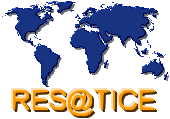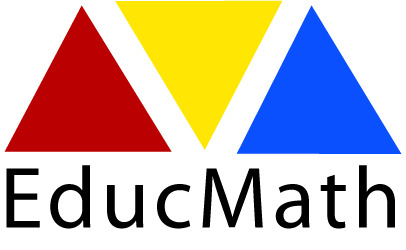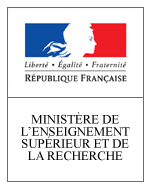CFP - Practice examples on learning with geo-media in schools
Call for papers and author guidelines
We kindly invite you to contribute practice example on learning with geo-media to a book published by the digital-earth.eu network. This book will be targeted at teacher trainers, students in teacher training, teachers, and persons involved in curriculum development. The publishing house will probably be Springer.
The collection follows a broad idea of geo-media (GPS, digital maps, GI(S), georeferenced pictures, non-visualized geodata, geolocalized mobile devices applications, augmented reality), referring not only to geographical spaces, but also to social and virtual ones. (For further information on the general topic see the attached digital-earth.eu glossary.)
The contributions should clearly refer to at least one of the following categories:
- technology – learn about technical necessities of recording geodata and publishing it with geo-media
- spatial thinking/science education – learn to use spatial analysis and construct hypotheses
- reflexive use – reflexive consumption of geo-media and of working with geo-media
- communication – communicate spatial visions with geo-media for participation and negotiation
General comments on geo-media and society, technical development of geo-media and educational benefits of geo-media are limited to the introductory chapters of the book and must not be repeated within the contributions on best practice examples.
Contributions should stick to the following criteria where applicable:
- follow the ideas of case-based learning, inquiry-based learning
- idea should be innovative and original
- must be in English language (including materials)
- teaching examples may be as short as one lesson up to a whole project
- need to include concepts of space and spatial representations, but may be cross-disciplinary
- should be platform-independent, using free platforms as example, focusing rather on concepts of learning with geo-media than on how to use a certain software
- technology should be user friendly and easy to use
- there is a clear added value of the usage of geo-media (“minds on instead if hands on”)
- need to be linked to pedagogy, to learning of complexity, and to constructivist approaches to learning, and may further collaborative, social, and game based learning
- are transferable to various contexts and levels of complexity
Author guidelines
Each contribution shall present a very practical, ready-to-use, theoretically founded example for working with geo-media in school. Each contribution should not exceed 8 pages (detailed format guidelines will come as soon as possible) and should keep to the following coherent structure:
- title, names of authors, institution, and affiliations
- abstract
- aim, target standard, target group: link into pedagogical background
- description of the learning environment / case
- preparation for the teacher: materials (should be easy available, including links to online resources), teaching methods, process and duration, method of the student assessment
- experiences / test in real school use: conclusion, alternative tools, transferability
- short reference list of the sources cited in the contribution (max. 5 references)
Important dates
- 1st of August 2012: Abstract (1 page max)
- October 8th 2012: Contributions (8 pages max)
- Oct. 2012: internal review by members of the digital-earth.eu network
- January 2013: final version
We are looking forward for your contribution!
Download CFP in pdf format.
Please submit your contributions electronically in PDF format to: thomas.jekel[at]sbg.ac.at and copy to eric.sanchez[at]ens-lyon.fr
For further information and in case of questions, please email to: thomas.jekel[at]sbg.ac.at and copy to eric.sanchez[at]ens-lyon.fr









